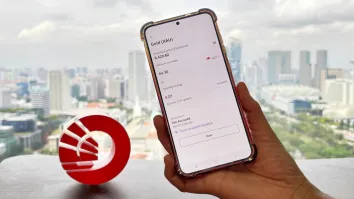Open API is just the beginning
By Eiichiro YanagawaIt might seem as though vertical division of labor and horizontal disintegration have already proliferated enough.
New financial service providers that are not the traditional financial institution are deftly using new technologies to engage customers, and with products and services, across financial infrastructure segments to secure a new customer base, and, in the process of doing so, forming a new community around these activities.
In the competitive environment of the new financial services industry, opportunities for traditional financial product service operators will erode as TPPs (distributors and new service providers) deprive them of opportunities to engage in dialogue with customers.
That involves more than the temporary deterioration of the revenue environment for traditional financial institutions, but rather also includes the risk of losing future business opportunities due to changing customer needs and loss of core customers.
The open banking market will move toward an era of co-creation and competition for the seamless provision of goods and services.
For new financial service providers, as competing individual companies in innovation it will be difficult to cover all financial products and services.
In the areas that new business operators are not eager to eager, namely the sectors in which just there is already a robust the selection of conventional products and services, and because under the current regulatory framework the account and customer information fundamental to transactions upon which customer instructions are based can only be executed/accessed through traditional business operators’ authentication and APIs, this all means that it is too early to count out incumbents and their existence can’t be ignored.
However, at the same, the fight centering around the UI for users, that is, the fight over mobile apps will only continue to intensify. Customers can access all account information from mobile apps, selecting the most appealing product and service offerings from a wide range of options, and completing the transaction with one click. In today's digital and hyper-competitive environment where customer experiences are shared nearly instantaneously through SNS (in particular, negative comments) the financial product services sector will presumably no longer be afforded special treatment or insulated from these digital realities.
When the banking industry shifts to a modular model, exactly what responsibilities banks will adopt could take the form of any number of scenarios.
- Banks become full-service providers: This differs from up until now in that modules could nimbly be replaced as needed and would secure greater strategic flexibility.
- Banks become service integrators: Premised on the existence of an established customer base, banks become product service providers with implementation that even goes as far as financial infrastructure through loosely coupled, comprehensive solutions.
- Banks become open architecture providers: Banks become full-service providers and service hubs that loosely couple the product services of partner firms to their customer interface and financial infrastructure.
- Banks become specialists: Banks offer services that become a piece of the value chain, collaborating with many front-end and back-end business operators to create added value.
- Banks become white label providers: Banks provide the financial infrastructure capabilities of core banking services. They provide a very rare and safe global delivery model, backed by exclusive licenses to countries and regions.
Eiichiro Yanagawa will be a speaker at the Asian Banking & Finance Retail Banking Forum 2018 - Bangkok leg on 31 May 2018.




















 Advertise
Advertise












